Addictions
Ontario and Saskatchewan join Alberta’s approach to opioid recovery
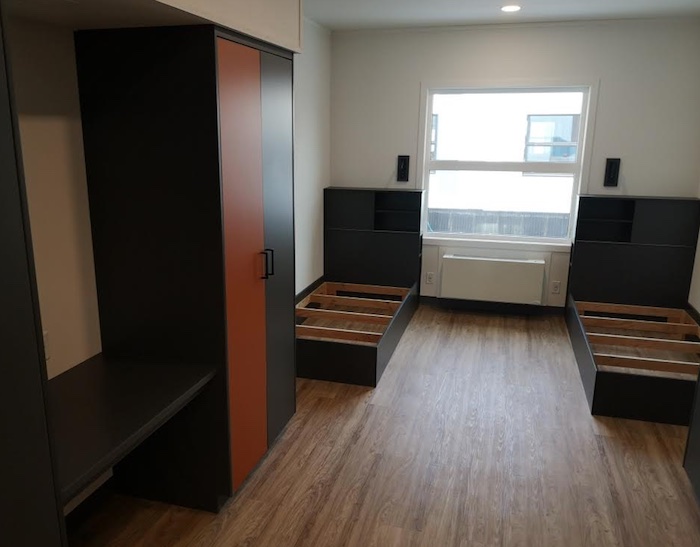
The governments of Alberta, Ontario and Saskatchewan are establishing a partnership to build systems of care focused on recovery.
On April 3 and 4, 2024, the eighth annual Recovery Capital Conference of Canada in Calgary welcomed nearly 2,000 delegates from Alberta, across Canada and around the world. A major focus of the conference was the Alberta Recovery Model—the system of care that Alberta’s government is building to provide treatment and recovery support for people living with mental health and addiction challenges.
Ministers responsible for mental health and addiction in Alberta, Ontario and Saskatchewan have agreed to collaborate on building systems of care that focus on recovery. This highlights the importance of breaking down barriers and increasing access to recovery-oriented care, sharing best practices, advancing partnerships with Indigenous communities, and advocating to the federal government for investment and policies that support recovery.
“We are eager to share the Alberta Recovery Model because we believe it is the most dignified, comprehensive and compassionate approach in any jurisdiction across Canada to help people overcome their mental health challenges and recover from the deadly disease of addiction. I look forward to seeing what this partnership brings as we work together with other provinces on building a system of care that focuses on recovery.”
“Saskatchewan is focused on helping people overcome addictions and live healthy, safe lives in recovery. Under our Action Plan for Mental Health and Addictions, we are doubling capacity to make addictions treatment more available and accessible, and transitioning to a Recovery-Oriented System of Care to better care for patients. By helping people overcome addictions, we can save lives, heal families and strengthen our communities.”
“Through our Roadmap to Wellness, Ontario is making unprecedented investments to ensure that those in our province struggling with mental health or addictions challenges get the care they need, when and where they need it. I look forward to working in closer collaboration with my colleagues from Alberta and Saskatchewan to build systems of care that prioritize recovery and help more people break free from addiction.”
This partnership is a step forward in working with and learning from other provinces on policies that bring meaningful and lasting change to those suffering from the deadly disease of addiction, or who are facing mental health challenges.
Addictions
British Columbia to re-criminalize hard drug use in public after massive policy failure
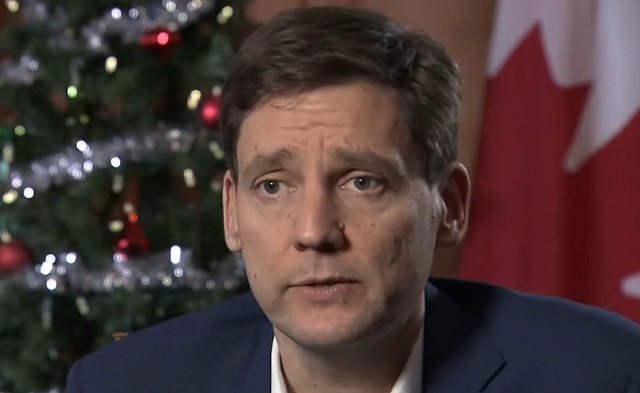
From LifeSiteNews
British Columbia premier David Eby announced that his province plans to re-criminalize hard drug use in public spaces after its decriminalization last year led to widespread social disorder.
British Columbia is asking the Trudeau government to roll back its drug decriminalization program after increased violence and continued overdoses.
On April 26, New Democratic Party (NDP) premier of British Columbia David Eby announced that he is working with Prime Minster Justin Trudeau’s federal government to re-criminalize drug use in public spaces, including inside hospitals, on transit, and in parks. British Columbia, under permission from the Trudeau government, had decriminalized such behavior in 2023.
“Keeping people safe is our highest priority,” Eby explained in a press release. “While we are caring and compassionate for those struggling with addiction, we do not accept street disorder that makes communities feel unsafe.”
“We’re taking action to make sure police have the tools they need to ensure safe and comfortable communities for everyone as we expand treatment options so people can stay alive and get better,” he continued.
Under the new regulations, police would be given the power to prevent drug use in all public places, including hospitals, restaurants, transit, parks and beaches.
However, drug use would remain legal at “a private residence or place where someone is legally sheltering, or at overdose prevention sites and drug checking locations.”
Eby’s concerns over drug use were echoed by Minister of Public Safety and Solicitor General Mike Farnworth who said, “Our communities are facing big challenges. People are dying from deadly street drugs, and we see the issues with public use and disorder on our streets.”
“As we continue to go after the gangs and organized criminals who are making and trafficking toxic drugs, we’re taking action now to make it illegal to use drugs in public spaces, and to expand access to treatment to help people who need it most,” he promised.
Beginning in early 2023, Trudeau’s federal policy, in effect, decriminalized hard drugs on a trial-run basis in British Columbia.
Under the policy, the federal government began allowing people within the province to possess up to 2.5 grams of hard drugs without criminal penalty, but selling drugs remained a crime.
While British Columbia has not yet indicated it plans to re-criminalize possession, its decision to clamp down on public drug use presents a major departure from its previous tactics of continually liberalizing its attitude toward narcotic use.
Since being implemented, the province’s drug policy has been widely criticized, especially after it was found that the province broke three different drug-related overdose records in the first month the new law was in effect.
The effects of decriminalizing hard drugs in various parts of Canada has been exposed in Aaron Gunn’s recent documentary, Canada is Dying, and in U.K. Telegraph journalist Steven Edginton’s mini-documentary, Canada’s Woke Nightmare: A Warning to the West.
Gunn says he documents the “general societal chaos and explosion of drug use in every major Canadian city.”
“Overdose deaths are up 1,000 percent in the last 10 years,” he said in his film, adding that “[e]very day in Vancouver four people are randomly attacked.”
Addictions
Must Watch: Addiction worker estimates 90% of “safer supply” drugs resold on black market
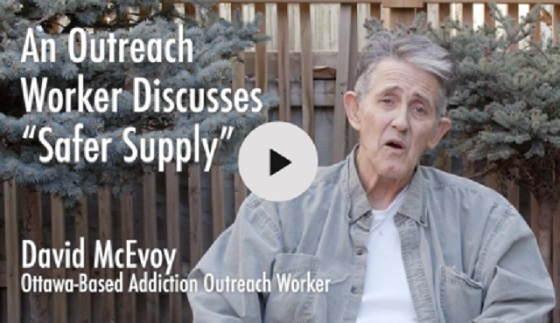
“It’s just… it’s created more addicts,” says David McEvoy, an Ottawa-based outreach worker who specializes in overdose prevention.
|
|
“Safer supply” refers to the practice of prescribing free recreational drugs as an alternative to potentially-tainted street substances. While advocates claim that this practice saves lives, David McEvoy, an Ottawa-based addiction outreach worker, says that approximately 90% of clients are reselling their taxpayer-funded drugs on the street, leading to new addictions and relapses.
His testimony is consistent with the testimony of dozens of addiction experts, former drug users, and youth. You can read a summary of his interview in the National Post here.
Our content is always free – but if you want to help us commission more high-quality journalism, consider getting a voluntary paid subscription.
-

 Education8 hours ago
Education8 hours agoSupport a young reader through the Tim Hortons Smile Cookie campaign
-

 Alberta1 day ago
Alberta1 day agoAlberta’s vision for passenger rail
-
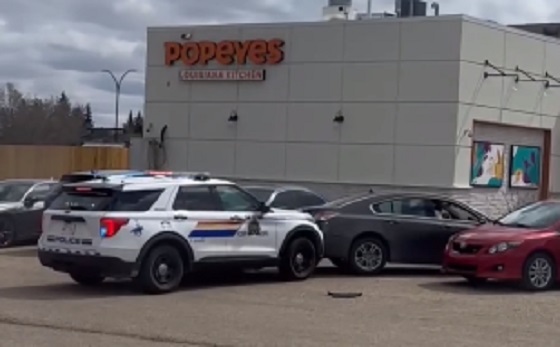
 RCMP1 day ago
RCMP1 day agoRed Deer RCMP arrest two individuals following ramming of police vehicle
-
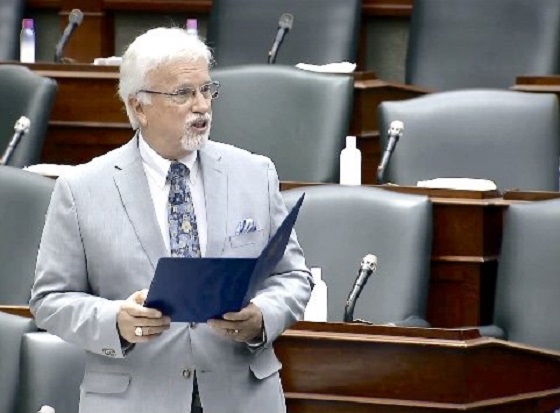
 COVID-192 days ago
COVID-192 days agoFormer Canadian lawmaker has no regrets about refusing COVID shot despite losing his job
-

 Education1 day ago
Education1 day agoRebels earn Jim Donlevy Memorial Trophy as WHL Scholastic Team of the Year
-

 COVID-192 days ago
COVID-192 days agoPeckford: Hallelujah! Supreme Court of Canada to hear Newfoundland and Labrador charter case
-
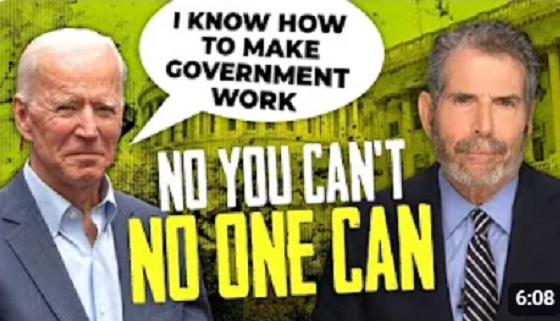
 John Stossel1 day ago
John Stossel1 day agoWhy Biden’s Just Wrong: NO ONE “Knows How to Make Government Work.”
-

 Alberta1 day ago
Alberta1 day agoThree Calgary massage parlours linked to human trafficking investigation






